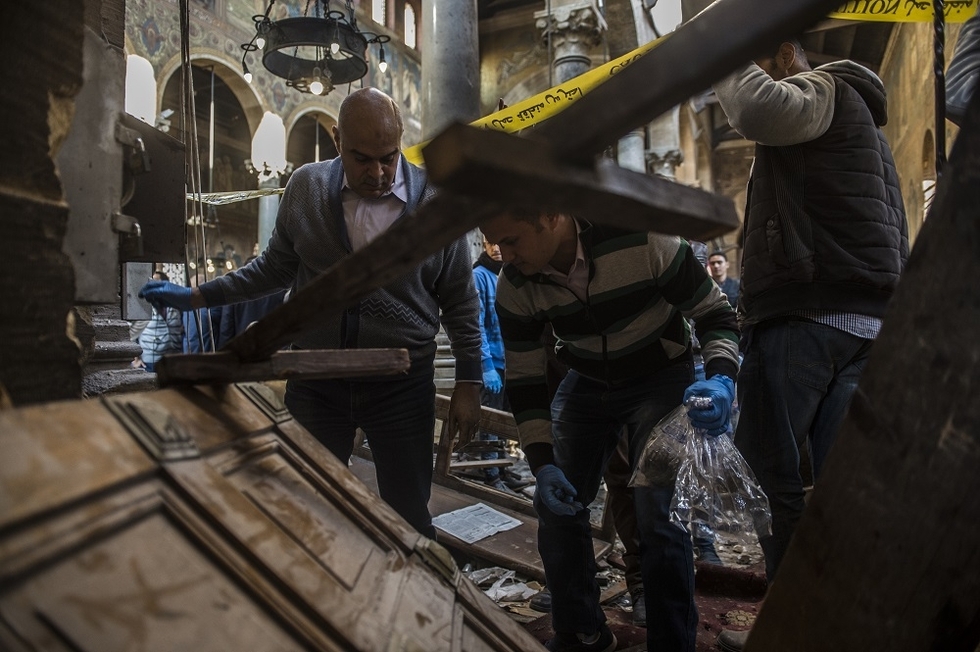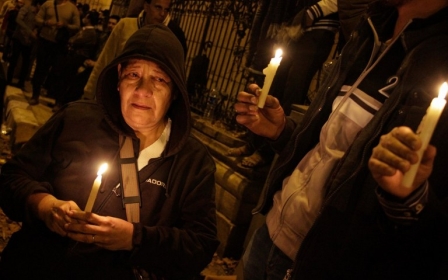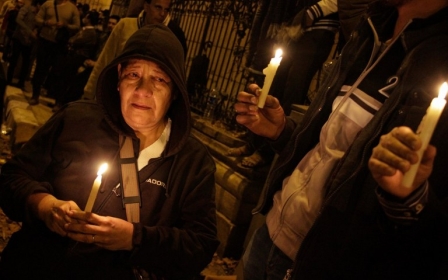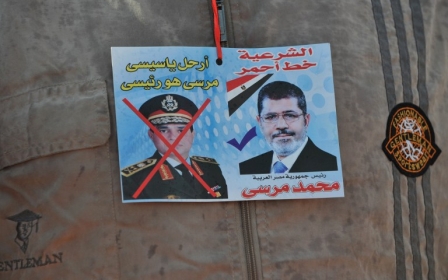Christians flee Egypt's restive Sinai after spate of attacks

Dozens of Coptic Christians have left Egypt's Sinai Peninsula after a string of attacks killed three Christians, church officials said on Friday.
On Thursday, suspected Islamic State militants killed a member of the minority in the northern Sinai city of el-Arish and set his house on fire, the third such attack this week.
About 250 Christians took refuge in the Evangelical Church in the Suez Canal city of Ismailiya, said church deacon and administrator Nabil Shukrallah.
"They've come running with their children. It's a very difficult situation. We're expecting 50 or 60 more," he told AFP.
Christians have been attacked before in the Sinai, where the Islamic State's Egypt affiliate is waging an insurgency.
However, there has been an uptick since IS released a video on Sunday calling for violence against the minority.
The video included an anti-Christian speech by a militant who later detonated an explosive vest in a Coptic church in Cairo on 11 December, killing 29 people.
Other church officials said they have also received Copts fleeing the peninsula.
On Wednesday, police officials said two Coptic Christians, a father and son, were shot dead behind a school in el-Arish.
Copts, who make up about 10 percent of Egypt's 90 million population, say they are sidelined in both the education system and state institutions.
Islamists accuse them of supporting the military overthrow of president Mohamed Morsi in 2013, which ushered in a deadly crackdown on his supporters.
Morsi's overthrow, which came after millions of protesters demanded his resignation, was also supported by Egypt's top Muslim institution, al-Azhar.
Mobs attacked dozens of churches and Christian properties in August that year after police killed hundreds of Islamist demonstrators while dispersing a Cairo protest camp.
New MEE newsletter: Jerusalem Dispatch
Sign up to get the latest insights and analysis on Israel-Palestine, alongside Turkey Unpacked and other MEE newsletters
Middle East Eye delivers independent and unrivalled coverage and analysis of the Middle East, North Africa and beyond. To learn more about republishing this content and the associated fees, please fill out this form. More about MEE can be found here.




